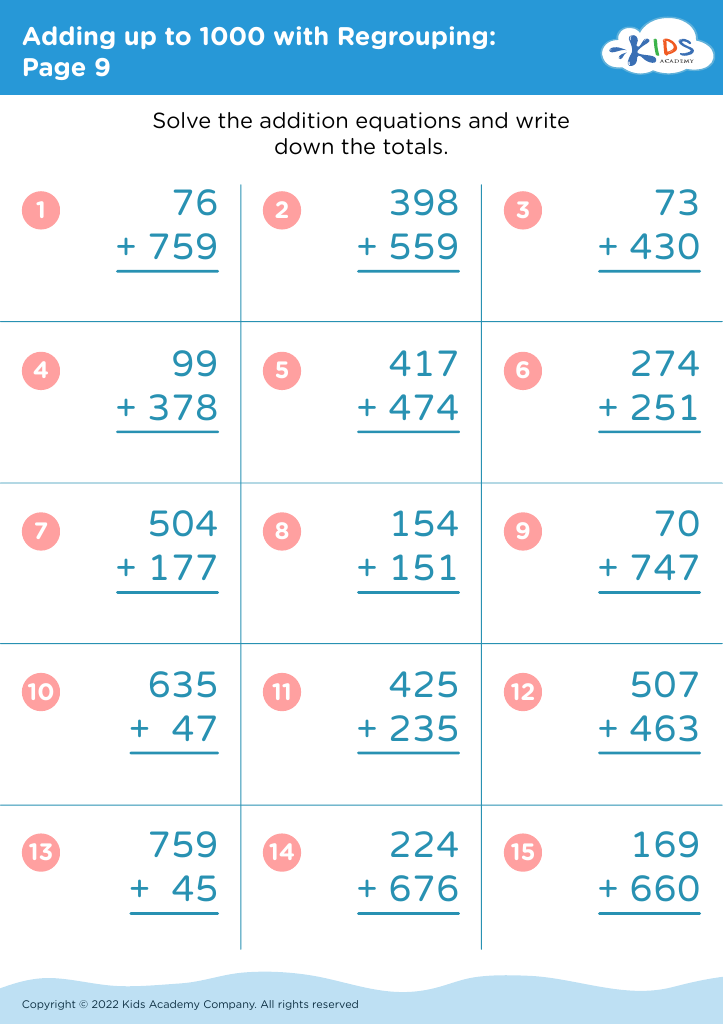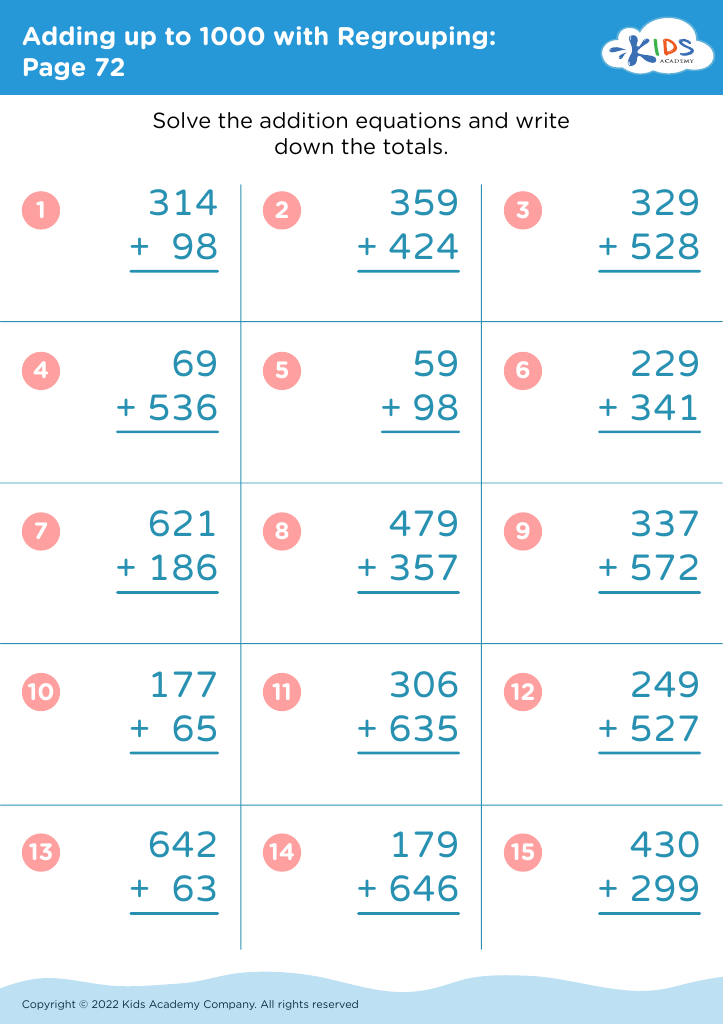Understanding directions Addition Worksheets for Ages 8-9
3 filtered results
-
From - To
Enhance your child’s math skills with our "Understanding Directions Addition Worksheets" tailored for ages 8-9. These engaging worksheets are designed to improve comprehension and following instructions while practicing addition. Kids will learn to decipher various directions to complete math problems accurately. With clear examples and varied difficulty levels, our worksheets not only reinforce fundamental addition concepts but also sharpen critical thinking and problem-solving skills. Perfect for classroom or home use, these resources help build confidence and competence in young learners. Equip your child with the tools they need to succeed in math, making learning fun and interactive!
Understanding directions in addition is crucial for children aged 8-9 as it lays the foundation for their mathematical skills and overall cognitive development. At this stage, children transition from basic arithmetic to more complex problem-solving techniques. Clear comprehension of addition directions is essential; it enables students to apply their knowledge to real-life scenarios, such as budgeting, cooking, and even understanding time.
Moreover, precise understanding of directions fosters critical thinking and attention to detail, skills that are invaluable in all areas of learning and everyday life. As parents and teachers, mastering direction-following in addition also helps identify any learning difficulties early on, allowing for timely intervention that can support a child's academic growth.
When children engage with various forms of addition problems, whether through word problems, visual aids, or hands-on activities, they become more adept at navigating diverse mathematical challenges. Encouraging problems involving varying complexities and formats makes mathematics more stimulating and enjoyable.
In summary, fostering a solid understanding of addition directions empowers children not only to excel in mathematics but also prepares them for future academic endeavors and instills a lifelong passion for learning. By prioritizing this skill, parents and teachers contribute significantly to children's success.
























